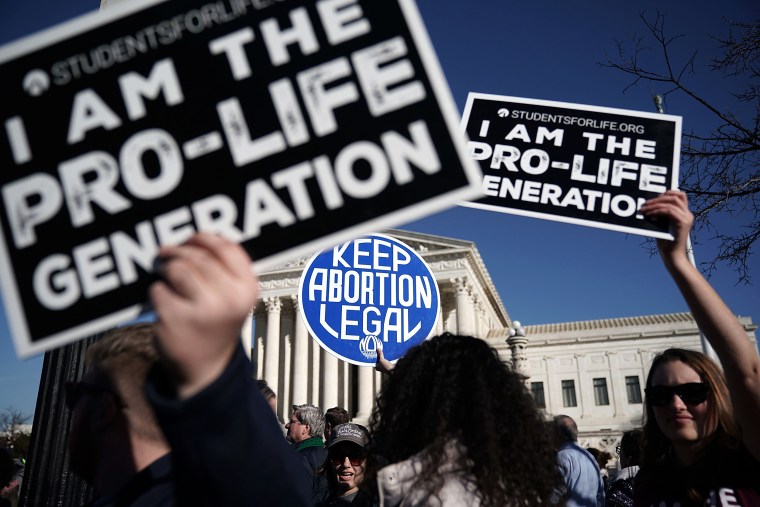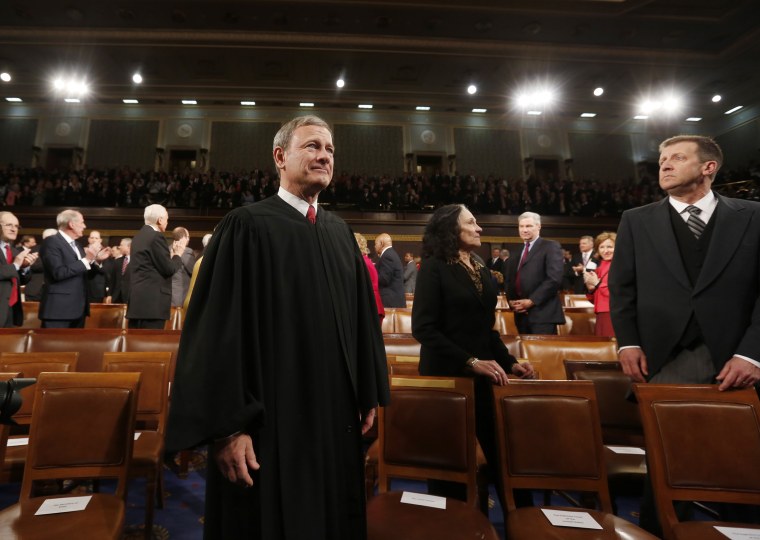
Supreme Court blocks Louisiana abortion law as John Roberts joins liberal justices in 5-4 ruling
Pete Williams
The ruling blocks Louisiana from enforcing a law that women's groups said would have left the state with just one doctor allowed to perform abortions.

The U.S. Supreme Court on Thursday blocked Louisiana from enforcing a law that women's groups said would leave only a single doctor legally allowed to perform abortions in the state.
By a 5-4 vote, the court said the restrictions must remain on hold while challengers appeal a lower court decision in favor of the law. Chief Justice John Roberts voted with the court's liberal members.
It was the Supreme Court's first significant action on the hot-button issue of abortion since Donald Trump's nominee, Brett Kavanaugh, replaced Anthony Kennedy, who generally voted with the court's liberals to uphold abortion rights.
In Thursday's ruling, Kavanaugh voted with the conservatives — Clarence Thomas, Samuel Alito, and Neil Gorsuch.
Kavanaugh filed a dissent, writing only for himself. He said he would have allowed the law to take effect in order to see whether it would impose a burden on women's access to abortion in the state.
Abortion-rights advocates applauded the court ruling, while opponents expressed disappointment.
“The Supreme Court has stepped in under the wire to protect the rights of Louisiana women,” said Nancy Northup, president and CEO of the Center for Reproductive Rights. “The three clinics left in Louisiana can stay open while we ask the Supreme Court to hear our case. This should be an easy case — all that’s needed is a straightforward application of the court’s own precedent.”
Benjamin Clapper, executive director for Louisiana Right to Life, said he was disappointed that the law remains on hold. He said supporters of abortion rights have fought “against every common-sense health standard. This is just another example of the extreme lengths the abortion industry pursues to protect abortion-on-demand.”
The high court's decision Thursday was not a ruling on the legal merits of the Louisiana restriction. But the decision to keep the law on hold signals that a majority of the justices have doubts about its constitutionality.
Passed by the state legislature in 2014, the measure requires any doctor offering abortion services to have admitting privileges at a hospital within 30 miles. Two Louisiana doctors and a clinic filed a legal challenge, arguing that it was identical to a Texas law the Supreme Court struck down in 2016. In that ruling, joined by Justice Kennedy, the court said Texas imposed an obstacle on women seeking access to abortion services without providing them any medical benefits.

The Center for Reproductive rights said Louisiana's law would leave only one doctor at a single clinic in New Orleans to perform the procedure, a drastic limitation that "cannot possibly meet the needs of approximately 10,000 women who seek abortion services in Louisiana each year."
But Louisiana officials urged the Supreme Court to let them begin enforcing the law. They said the challengers' claim of harm rested on the fear that clinics would be shut down overnight. "But that is not correct. Louisiana envisions a regulatory process that begins, logically, with collecting information from Louisiana's abortion clinics and their doctors," the state said.
